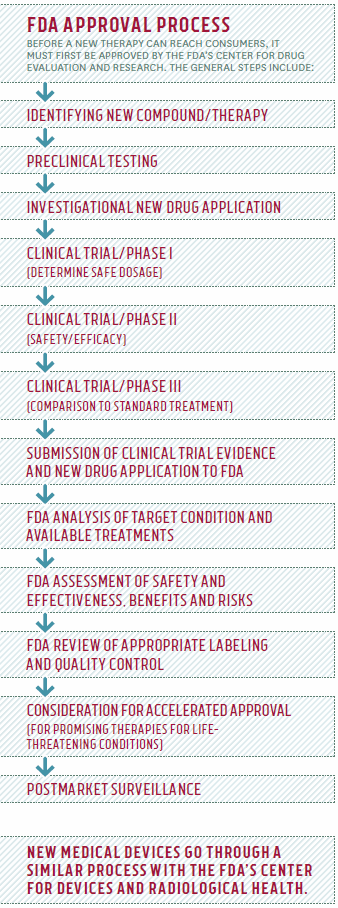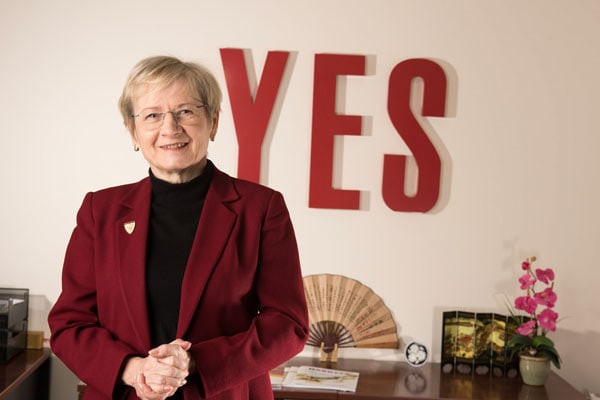Regulatory science encompasses every aspect of pharmaceutical and medical device development — from the first spark of inspiration for solving a pressing societal problem to the evolution of that idea into a marketable product available for those who need it.
Its impact on daily life is extraordinary, as the U.S. Food and Drug Administration — and its international counterparts — exercise broad oversight over increasingly complex products.
Regulatory science is a relatively new but rapidly growing field that is not only becoming more global in nature but also offers a world of opportunity to students. The need for trained professionals far outpaces supply.
Under the leadership of Frances Richmond, USC Mann established one of the nation’s first programs in this arena in 1999. In response to industry demand, the school now offers three interdisciplinary master’s programs in the field — Regulatory Sciences, Management of Drug Development and Medical Product Quality — as well as six certificates and, since 2008, the nation’s first professional doctorate in Regulatory Science. Individual classes can be taken without enrollment in a certificate or degree program, and courses are available in person or online with flexibility designed around the needs of busy professionals.
Graduates of the program are employed in industry, government, consulting and academia, providing leadership in such roles as regulatory specialist, formulation engineer, good manufacturing practice expert, quality assurance team leader, reimbursement specialist and medical writer.
“We have more jobs coming to us than we can fill,” says Richmond, who led the school’s International Center for Regulatory Science until her appointment last year as head of the new Department of Regulatory and Quality Sciences — further evidence of the emerging field’s prominence. “We need people badly not only because there are few highly trained experts but also because a lot of the folks who have been doing these jobs are retiring.”
In addition to its many educational initiatives, the department also maintains:
→ an extensive international outreach and support program — including formal memoranda of understanding with partners in Korea and China, and frequent exchange trips and informal visits
→ a hub for research groups that develop new products for unmet medical needs
→ a research consortium focused on translational and regulatory research, with an affiliation with the Clinical and Translational Sciences Institute in the Los Angeles Basin
→ a regulatory consulting group that assists faculty from USC and other academic partners with advice and education on regulatory matters

“Dr. Richmond’s visionary guidance has made our regulatory science program an international leader, with an enormous range of offerings from a renowned and dedicated team,” Dean Vassilos Papadopoulos says.
Doctoral student Martin Konig-Bastiann accompanied Richmond and a team to Asia last fall, where he gave a presentation at a Shanghai FDA device-testing facility. “Everybody we met with talked about how amazing the regulatory science program we have is,” he says. “They really revere Frances Richmond. They treated us like royalty everywhere we went.”
“Frances Richmond is a rock star,” adds Mary Wilhelm, another doctoral student on the trip, who presented at the Chinese Pharmaceutical University in Nanjing on biomarkers and cancer immunotherapy.
As Richmond and the rest of the regulatory science faculty continue to educate and inspire new professionals, she also is focusing on the department’s future. Her goals include establishing new undergraduate courses and a postdoctoral professional master’s program to bolster postdocs’ success in the job market.
Another area of emphasis will be building upon the faculty’s already extensive work on research grants. Richmond aims to see the faculty increasingly serve as the regulatory resources for USC research teams as well as student experiential projects. “We can help others be successful at their missions by providing strategic advice,” she explains.
Finally, she will concentrate on expanding the department’s international programs, which currently include a Summer Fest that brings together approximately 40 students from Taiwan, China and Korea each year to spend a month learning about regulatory science. And the D.K. Kim Foundation recently provided a $1 million gift to support development of a model village in Colombia.
The department currently has approximately 135 students. About 35 of those are doctoral students and the rest are studying at the master’s level. Students from numerous other degree programs throughout the university — such as biomedical engineering — also take regulatory science courses.
From the students’ perspective, the field holds lucrative positions and plenty of career potential and stability.
“Regulatory science and quality management roles sit at the center of a company,” Richmond says. “You are needed for every possible project and interface with every other group.”
To learn more, visit regulatory.usc.edu


